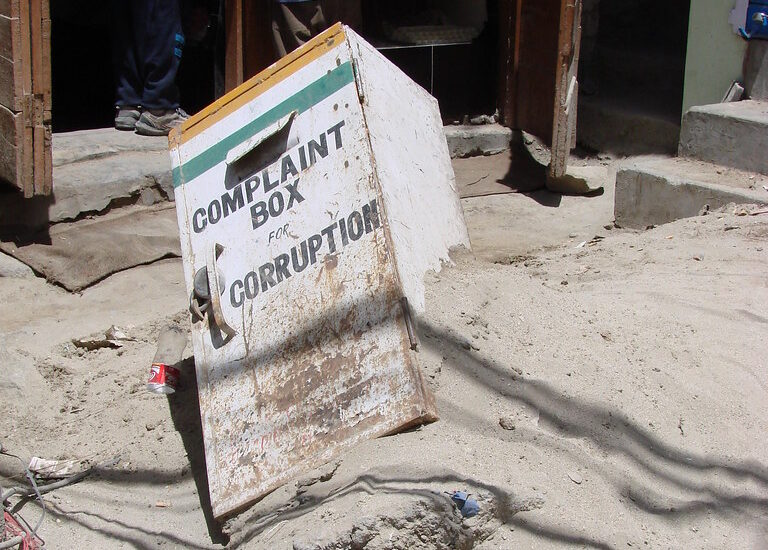Corruption Calls Cost You Privacy: Delhi High Court Draws the Line

Introduction
In a recent significant ruling, the Delhi High Court has upheld the Central Bureau of Investigation’s (CBI) interception of telephonic conversations in a corruption probe, reiterating that while the right to privacy is fundamental, it is not absolute and can be curtailed when corruption threatens public safety and economic stability. The decision in Aakash Deep Chouhan v. CBI & Anr. [CRL.M.C. 204/2020] offers key clarity on when wiretapping can be justified under the Indian Telegraph Act, 1885.
Factual Background
The CBI registered an FIR against the accused for allegedly conspiring to secure a sub-contract from M/s. Shapoorji Pallonji & Co. (P) Ltd. in favour of M/s. Capacite Structures Ltd. by bribing a public servant. It was alleged that a senior public servant, Pradeep Kumar Mishra, demanded a Royal Enfield motorcycle as illegal gratification to influence officers of NBCC (India) Ltd., a government enterprise.
The petitioner, Aakash Deep Chouhan, an employee of M/s. Capacite, was accused of purchasing and delivering the motorcycle. To substantiate the conspiracy, the CBI relied on intercepted calls between the accused persons, which the petitioner claimed were unlawfully obtained in breach of his right to privacy under Article 21 of the Constitution.
Arguments The petitioner challenged the legality of the interceptions, arguing they violated the mandatory requirements under Section 5(2) of the Indian Telegraph Act and Rule 419A of the Telegraph Rules, 1951. He contended there was neither a “public emergency” nor “public safety” concern to justify interception.
The CBI countered that corruption has a far-reaching impact on national economic safety, satisfying the public safety threshold. It also argued that the interceptions were duly authorised by the Ministry of Home Affairs, reviewed by the Review Committee, and were critical evidence corroborating the bribery scheme.
Judicial Reasoning
Justice Amit Mahajan dismissed the plea, reiterating that the right to privacy is not absolute. Relying on People’s Union for Civil Liberties v. Union of India (1997), the Court held that while phone tapping requires strict compliance with statutory safeguards, corruption particularly involving public servants has such pervasive consequences on economic well-being that it can qualify as a threat to public safety.
The Court found that the interception orders specified “public safety” as the ground, were reviewed by the competent committee, and met the conditions under Section 5(2). Significantly, it rejected the petitioner’s plea to destroy the intercepted data, observing that once relevant, such evidence remains admissible despite alleged procedural lapses, citing State (NCT of Delhi) v. Navjot Sandhu (2005).
Contrasting View: Madras High Court’s Approach
Interestingly, the ruling contrasts with the recent decision of the Madras High Court (P Kishore v. Secretary to Government & Ors. [2025 LiveLaw (Mad) 224]), which quashed a phone-tapping order in a corruption case, holding that covert surveillance absent a clear public emergency or evident risk to public safety violated the right to privacy. The Madras High Court stressed that such emergencies must be “apparent to a reasonable man” and criticised covert interceptions that do not meet this threshold.
Implications This judgment reaffirms the delicate balance between privacy rights and the imperative to investigate corruption that could undermine public institutions and economic security. It underscores that courts may interpret “public safety” broadly when economic offences have a significant potential impact.
For companies and executives, the ruling is a cautionary signal: conversations, emails, or transactions that touch the threshold of economic crimes may become lawful grounds for surveillance if statutory procedures are properly followed.
Conclusion
The Delhi High Court’s decision makes it clear that in the fight against corruption, the scales may tip in favour of public safety when economic offences pose a systemic threat. This is a timely reminder that procedural safeguards for privacy must be respected, but where compliance exists, interceptions can and will stand up in court.
For more details, write to us at: contact@indialaw.in
By entering the email address you agree to our Privacy Policy.



